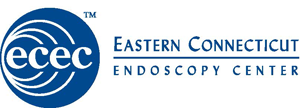Study Links Tumor-related Bacteria to Young-onset Colon Cancer

Researchers found distinct differences in tumor-related bacteria linked to young-onset colon cancer.
Colorectal Cancer Increasing Among Young People
Adults older than 50 have a higher risk of colorectal cancer (CRC), but the disease is rapidly increasing among young people. By 2030, young-onset colon cancer is expected to comprise 11 percent of colon cancers and 23 percent of rectal cancers.
Hereditary cancer syndromes only cause about 20 percent of young-onset CRC cases, which means most young people are not predisposed to colon cancer. However, young people are more likely to have advanced disease at the time of diagnosis, possibly due to low screening rates.
While it is still unclear why so many young people are developing CRC, some possible reasons may include the following:
- Antibiotic use
- Lack of exercise
- Obesity
Study Shows Tissue Differences
A new study published in eBioMedicine suggests young-onset colon cancer patients may have specific tumor-related bacteria compared to average-age colon cancer patients. The purpose of the study was to explore factors that could contribute to the rise in young-onset colon cancer.
“This research is the first step in exploring factors that could play a role in the rise of young onset colorectal cancer,” Shimoli V. Barot, MD, medical oncologist at Cleveland Clinic Cancer Institute, told Healio. “Having identified the tumor bacteria, we can now explore utilizing this information to devise strategies to address this challenge.”
The research analyzed colon tissue samples from 136 people diagnosed with colon cancer before age 50, comparing them to samples from 140 older patients with colorectal cancer above age 60. The research team found young colon cancer patients had more bacterial diversity, and the bacteria interacted with the tumor in different ways. Young patients were also more likely to have left-sided, rectal and advanced stage tumors (such as stage IV cancer).
What Impact Could This Have on Colon Cancer Research?
Dr. Barot said she hopes the study results can help produce preventive treatments in the future. Perhaps probiotic or antibiotics could promote healthy gut bacteria and eliminate the tumor-causing bacteria.
“We will need to compare the bacteria to that of individuals who don’t have colorectal cancer,” she said. “Then we will try to figure out the role bacteria play in the pathogenesis of early-onset colorectal cancer. We want to determine what these bacteria are secreting, how they are interacting with the immune system around the tumor area and how the immune system could be primed to fight these bacteria.”
Naseer Sangwan, PhD, of the Cleveland Clinic Lerner Research Institute, added that “further research is needed into how lifestyle factors such as diet, medications and obesity may impact gut bacteria and contribute to young-onset colon cancers” (Medical Xpress).
Young-onset Colon Cancer Is Increasing
About 19,550 Americans younger than 50 develop colorectal cancer every year, and about 3,750 die from the disease. Colon cancer is the fourth-leading cause of death in this age group, following car accidents, homicide and suicide.
Since 2011, colorectal cancer incidence has been increasing by two percent a year in adults younger than 50, as well as adults between 50 and 54.
Get Your First Colon Cancer Screening at 45 or Before
Adults at average risk for colon cancer should begin screening at age 45. But if you have a family history of colon cancer or colon polyps, it is recommended to start screening earlier. People with hereditary cancer syndromes like familial adenomatous polyposis or Lynch syndrome — also known as hereditary non-polyposis colorectal cancer (HNPCC) — have a higher risk of colon cancer, and tumors usually develop at an earlier age.
Know the Warning Signs of Colon Cancer
Colon cancer may not cause symptoms right away. It is also possible for a separate condition, like hemorrhoids, irritable bowel syndrome or inflammatory bowel disease, to cause similar symptoms.
Common symptoms of colon cancer may include the following:
- A change in bowel habits, such as diarrhea, constipation or narrowing of the stool, that lasts for more than a few days
- A feeling that you need to have a bowel movement that is not relieved by having one
- Blood in the stool, which might make it look red, dark brown or black
- Cramping or abdominal (belly) pain
- Weakness and fatigue
- Unintentional weight loss
If you experience any of these symptoms, regardless of your age, make an appointment to see your doctor.
Colonoscopy Screening for Colon Cancer
There are two basic types of screenings:
- Stool-based tests — These tests are less invasive because they test the stool for signs of cancer.
- Colonoscopy — These tests examine the structure of the colon and rectum and look for abnormalities called polyps. They are done with a scope placed into the rectum.
Many people prefer stool-based tests because they are faster and less expensive, but abnormal test results require a colonoscopy.
Colonoscopy is the most effective because it allows your gastroenterologist to examine the entire colon and remove polyps before they become cancerous. A screening colonoscopy typically lasts less than an hour, and it is typically repeated every 10 years if no abnormalities are detected by your doctor and you are not at higher risk for colon cancer.
Call your gastroenterologist today to make an appointment.
